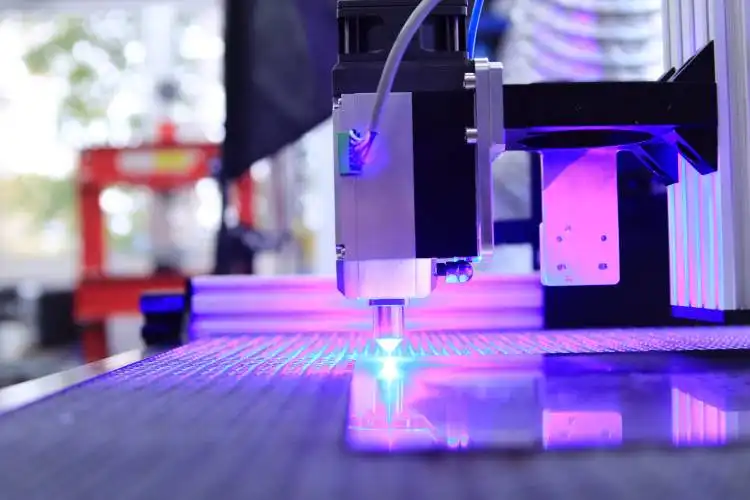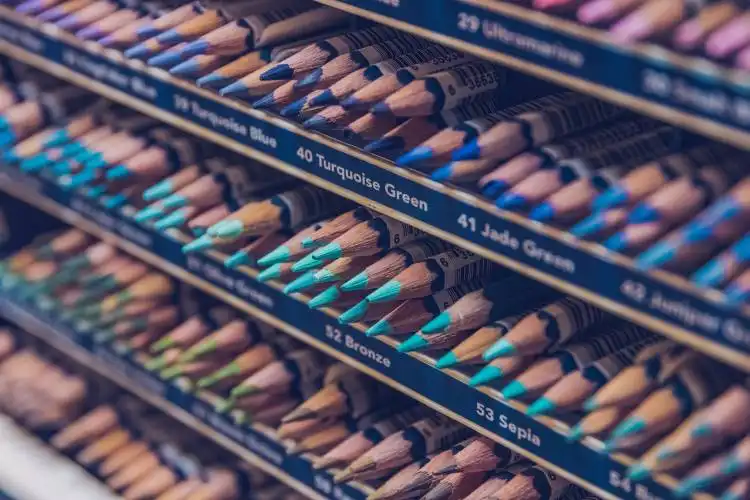Start a Museum Consulting Business
Breathing Life into History: The Advent of Museum Consulting Ventures
| Updated


MUSEUM CONSULTING BUSINESS
Planning on infusing the past with the future? A Museum Consulting Business might be your golden ticket! This form of enterprise dedicates itself to providing expertise and advice to museums on various fronts, such as exhibit creation, artifact preservation, and guest engagement. You will act as the time guardian, making history appealing and educational while also ensuring the business operations of the museum roll out as smooth as a perfectly spun pottery wheel. So, strap on your archaeologist hat and get ready to dig into a business that's both culturally enriching and economically rewarding.
Jump to Business Plan
RELATED BUSINESS IDEAS
Browse ALL Arts & Crafts Business Ideas
Discover Your Perfect Domain
Unlock the door to your online success with our hand-picked selection of premium domain names. Whether you're starting a new venture or rebranding an existing one, the right domain can set the tone for your digital presence. Browse through our curated list, each with its unique potential to enhance your brand's visibility and credibility.
MUSEUM CONSULTING MINI BUSINESS PLAN
This a quick reality check to help you identify the strengths and weaknesses of your business concept before you dive in.
Expected Percent Margin:
- Gross Margin: 60-75%
- Net Profit Margin: 20-35%
Earnings Expectations:
- Daily Earnings: $300 - $700
- Weekly Earnings: $1,500 - $3,500
- Monthly Earnings: $6,000 - $14,000
- Annual Earnings: $72,000 - $168,000
Actions to Hit Those Numbers:
Skills and Credibility:
- Experience: A minimum of 5-10 years' experience in museum administration, curation, or education is generally required.
- Education: A master's degree or Ph.D. in art history, museum studies, or a related field can significantly increase credibility.
Marketing and Customer Acquisition:
- Networking: Regularly attend and present at museum industry events and conferences.
- Website and SEO: Develop a professional website and invest in SEO for online visibility.
Services:
- Consulting Fee: On average, anticipate earning $75 - $200/hr, depending on your level of expertise and the complexity of the project.
Cost Control:
- Office Space: Opt for a home office to mitigate rent expenses. When necessary, rent meeting rooms on a per-use basis.
- Marketing: Allocate approximately $500 - $1,000 K per month towards online and offline marketing efforts.
Business Operations:
- Work Hours: As a consultant, expect a flexible schedule. Anticipate working evenings and weekends when deadlines approach.
- Projects: Aim to take on 1-4 projects per month, depending on the scale and scope of the projects.
Remember, the above estimations can fluctuate depending on location, competition, and economic status. It's essential to seek the counsel of a financial advisor and market analyst when starting your business.
NOT WHAT YOU HAD IN MIND? Here are more ideas



Browse ALL Arts & Crafts Business Ideas
Grab Your Business Website Name
Before you get caught up in the whirlwind of setting up your business, invest in a domain name. It's a small but significant step that lays the foundation for your brand and makes it easier for customers to find and trust you. Just like you wouldn't build a house without securing the land first, don't build a business without securing your domain name.
"Why? Can't that wait?" Here's why it shouldn't
Step 1: Determine if Museum Consulting Business is Right Endeavor
Breakdown of Startup Expenses
Before starting a museum consulting business, it is important to understand the startup costs associated with the venture. These costs can include legal fees, such as registering the business with the state, as well as any necessary permits or licenses. Additionally, there may be costs associated with renting office space, purchasing office equipment, and hiring staff. It is important to research these costs thoroughly and create a budget that will allow the business to be successful.
Breakdown of Ongoing Expenses
Once the initial startup costs have been accounted for, it is important to understand the ongoing expenses associated with running a museum consulting business. These costs can include rent, utilities, insurance, and salaries for staff. Additionally, there may be costs associated with advertising and marketing, as well as any necessary software or technology. It is important to create a budget for these expenses and to be aware of any potential changes that may occur over time.
Examples of Ways to Make Money
Once the startup and ongoing expenses have been accounted for, it is important to understand the ways in which a museum consulting business can make money. These can include consulting fees, commissions, and other forms of payment. Additionally, the business may be able to offer services such as event planning, grant writing, and fundraising. It is important to research the different ways in which the business can generate income and to create a plan for how to best capitalize on these opportunities.
Step 2: Name the Business
When it comes to naming your business, there are a few tips to keep in mind. First, make sure the name is easy to remember and pronounce. It should also be unique and distinct, so it stands out from the competition. Additionally, it should be relevant to the services you offer, so customers can easily identify what your business is about. Finally, make sure the name is available to register as a trademark. This will help protect your business from competitors using the same or similar name.
Research the Competition
Before settling on a name, it’s important to research the competition. Look at the names of other museum consulting businesses in your area and make sure your name is different. Additionally, research the domain name availability for the name you’ve chosen. If the domain name is already taken, it may be best to choose a different name.
Register Your Business Name
Once you’ve chosen a name, you’ll need to register it with the state. This will help protect your business from competitors using the same or similar name. Additionally, it will make it easier to open a business bank account and obtain any necessary licenses or permits.
Get a Logo
A logo is an important part of your business identity. It will be used on your website, business cards, and other materials. Consider hiring a professional designer to create a logo that reflects the mission and values of your business. Additionally, make sure the logo is easy to recognize and remember.
Step 3: Create a Business Plan
Creating a business plan is an essential step in starting a museum consulting business. It should include an overview of the business, a description of the services you plan to offer, a market analysis, a financial plan, and a plan for marketing and advertising.
The overview should include a mission statement, a description of the business, and a description of the services you plan to offer. It should also include information about the target market, the competition, and the advantages the business has over its competitors.
The description of services should include the types of services you plan to offer, the cost of those services, and the expected turnaround time. It should also include information about how you plan to handle customer inquiries and how you plan to deliver the services.
The market analysis should include an analysis of the current market, an analysis of the potential market, and an analysis of the competition. It should also include an analysis of the strengths and weaknesses of the business.
The financial plan should include a breakdown of startup expenses, a breakdown of ongoing expenses, and a plan for generating revenue. It should also include information about how the business will be funded and how the business will be managed.
The plan for marketing and advertising should include a description of the strategies you plan to use to promote the business and attract customers. It should also include information about how you plan to use social media, online advertising, and other forms of marketing to reach potential customers.
Step 4: Obtain Necessary Licenses and Permits
Before starting a museum consulting business, it is important to understand the types of licenses and permits that may be required. Depending on the type of business, the location, and the services being provided, the necessary licenses and permits may vary. For example, if the business is providing services such as appraisals, the consultant may need to obtain a license from the state to do so. Additionally, the consultant may need to obtain a business license from the local government and a permit to operate the business from the local zoning board.
How to Obtain Licenses and Permits
Once the types of licenses and permits needed for the business have been identified, the next step is to obtain them. The process for obtaining licenses and permits may vary depending on the location, but generally, the consultant will need to fill out an application and submit it to the relevant government agency. The application may require information such as the business name, address, and type of services being provided. Additionally, the consultant may need to provide proof of insurance, a business plan, and other documents. Once the application is submitted, the government agency will review it and issue the necessary licenses and permits.
Cost of Licenses and Permits
The cost of licenses and permits may vary depending on the type of business and the location. Generally, the consultant will need to pay a fee to obtain the licenses and permits. Additionally, the consultant may need to pay an annual fee to renew the licenses and permits. It is important to research the cost of licenses and permits in the area before starting the business to ensure that the startup costs are covered.
Benefits of Obtaining Licenses and Permits
Obtaining the necessary licenses and permits is important for any business, but it is especially important for a museum consulting business. Having the proper licenses and permits will demonstrate to potential clients that the business is legitimate and trustworthy. Additionally, having the proper licenses and permits will ensure that the business is in compliance with local laws and regulations. Finally, having the proper licenses and permits will help protect the business from potential legal issues.
Step 5: Secure Financing
Securing financing is a critical step in starting a museum consulting business. There are several options for financing a business, including taking out a loan, using personal savings, or seeking out investors.
Taking out a loan is a common option for financing a business. There are many different types of loans available, including business loans, personal loans, and lines of credit. Each type of loan has its own terms and conditions, so it is important to research the different options and find the one that best suits the needs of the business.
Using personal savings is another option for financing a business. This option can be beneficial as it does not require taking on debt or seeking out investors. However, it is important to consider the risks associated with using personal savings, such as the potential for losing the money if the business fails.
Seeking out investors is another option for financing a business. This option can be beneficial as it can provide the business with additional capital and resources. However, it is important to consider the risks associated with taking on investors, such as giving up a portion of the business’s profits or control of the business.
Create a Business Plan
Once the financing options have been considered, it is important to create a business plan. A business plan should include a detailed breakdown of the business’s goals, strategies, and financial projections. It should also include a marketing plan and an operational plan. Creating a business plan is an important step in starting a museum consulting business as it will help to ensure that the business is well-prepared for success.
Step 6: Establish a Business Location
When deciding on a location for a museum consulting business, it is important to consider factors such as the size of the space needed, the cost of the space, and the accessibility of the area. It is also important to consider the local laws and regulations that may affect the business. Additionally, it is important to consider the potential customer base in the area.
Options for a Business Location
When it comes to choosing a location for a museum consulting business, there are several options. One option is to rent office space in a commercial building. This is a good option for businesses that need a physical space to meet with clients. Another option is to rent a space in a shared office building. This is a good option for businesses that need a physical space but don’t need a lot of space. A third option is to work from home. This is a good option for businesses that don’t need a physical space and don’t need to meet with clients. Finally, businesses can also choose to work remotely, which is a good option for businesses that don’t need a physical space and don’t need to meet with clients.
Establishing a Business Location
Once a business has chosen a location, it is important to take the necessary steps to establish the business in that location. This includes registering the business with the local government, obtaining any necessary permits or licenses, and setting up the business’s physical space. Additionally, it is important to make sure the business has the necessary insurance coverage and that the business is compliant with any local laws and regulations.
Step 7: Market Your Business
Once you have established your business, you will need to market it in order to attract new clients. Examples of marketing strategies include creating a website, utilizing social media, attending industry events, and advertising in local publications. Additionally, you may want to consider joining a professional organization, such as the American Association of Museums, in order to network with other museum professionals. This will help to increase your visibility and credibility in the museum consulting industry.
Develop a Brand
Developing a brand is an important part of marketing your business. This includes creating a logo, slogan, and mission statement that reflect the values of your business. Additionally, you should create a website that showcases your services and provides potential clients with information about your business. This will help to establish your business as a professional and reliable resource for museum consulting services.
Utilize Online Resources
In addition to traditional marketing strategies, you should also utilize online resources to reach potential clients. This includes creating a presence on social media platforms such as Facebook, Twitter, and Instagram. Additionally, you should consider creating content such as blog posts and videos to share on your website and social media accounts. This will help to increase your visibility and reach a larger audience.
Develop a Network
Finally, it is important to develop a network of contacts in the museum consulting industry. This includes connecting with other museum professionals, attending industry events, and joining professional organizations. This will help to increase your credibility and provide you with valuable resources and connections. Additionally, it is important to maintain relationships with your current clients in order to build loyalty and trust.
Step 8: Hire Employees
When hiring employees for a museum consulting business, it is important to consider the skills and experience needed for the job. It is also important to consider the cost of hiring and training new employees. It is best to hire employees who have experience in the museum industry, as they will be able to provide valuable insight and advice. Additionally, it is important to consider the cost of benefits and other perks that may be offered to employees.
Finding the Right Employees
Finding the right employees for a museum consulting business can be a challenge. It is important to look for candidates who have the right skills and experience for the job. It is also important to look for candidates who have a passion for museums and the museum industry. Additionally, it is important to look for candidates who have a good attitude and are willing to learn.
Training Employees
Once the right employees have been hired, it is important to provide them with the necessary training. This should include training on the museum industry, the services offered by the business, and any other topics that are relevant to the job. Additionally, it is important to provide employees with the necessary tools and resources to help them succeed.
Establishing Policies
It is important to establish policies and procedures for the museum consulting business. This should include policies regarding employee conduct, customer service, and other aspects of the business. Additionally, it is important to establish policies regarding the use of technology, such as computers and other equipment. Establishing policies will help ensure that employees are aware of their responsibilities and that the business is running smoothly.
Step 9: Set Up Accounting System
When setting up an accounting system for a museum consulting business, there are a few different types of accounting systems to choose from. The most common types of accounting systems are cash-basis accounting, accrual-basis accounting, and hybrid accounting. Cash-basis accounting is the simplest and most straightforward accounting system, as it records all transactions when cash is exchanged. Accrual-basis accounting is more complex, as it records transactions when they occur, regardless of when cash is exchanged. Hybrid accounting is a combination of cash-basis and accrual-basis accounting.
Choosing the Right System
When deciding which type of accounting system to use, it is important to consider the size and complexity of the business. For small businesses with few transactions, cash-basis accounting may be the most suitable. For larger businesses with more complex transactions, accrual-basis accounting may be the better choice. It is also important to consider the type of information that will be needed for tax purposes.
Setting Up the System
Once the type of accounting system has been chosen, the next step is to set up the system. This includes setting up accounts, entering transactions, and reconciling accounts. For cash-basis accounting, this will involve entering all cash transactions into the accounting system. For accrual-basis accounting, this will involve entering all transactions when they occur, regardless of when cash is exchanged.
Maintaining the System
Once the accounting system has been set up, it is important to maintain it on a regular basis. This includes entering transactions, reconciling accounts, and preparing financial statements. It is also important to regularly review the system to ensure accuracy and to identify any potential issues.
EXPLORE MORE CATEGORIES
Browse ALL Business Idea Categories
TAKE THE NEXT STEPS









